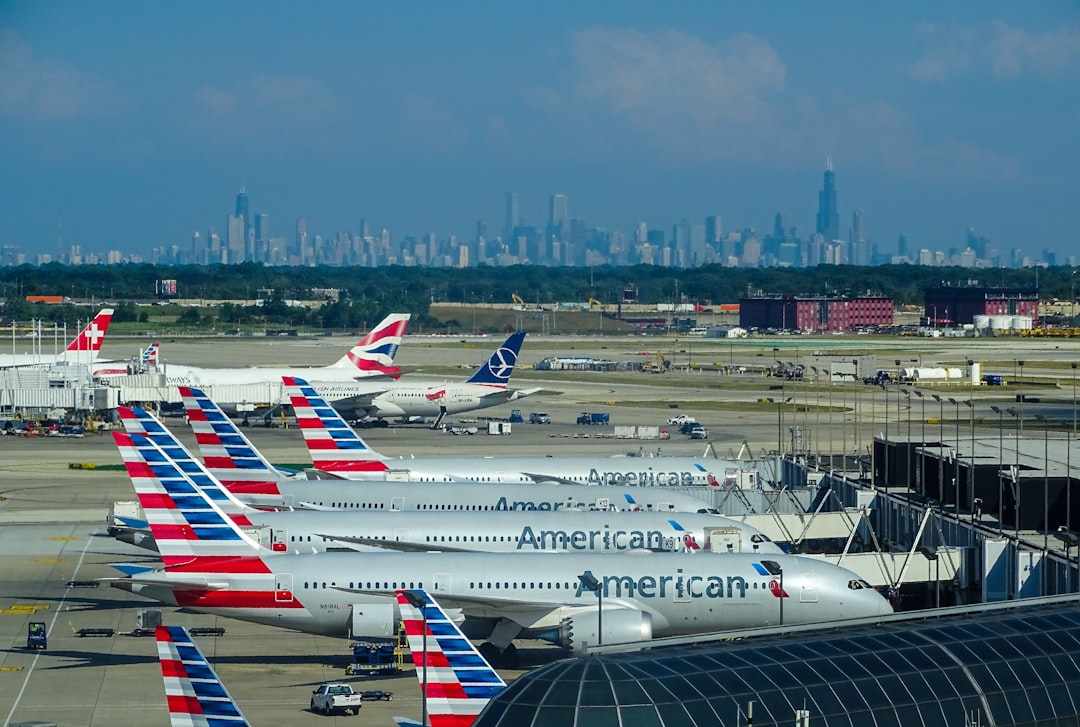Key Takeaways
• Chicago sued DHS on May 13, 2025, over new counterterrorism funding conditions tied to immigration enforcement.
• Lawsuit challenges requirements for cities to help with federal immigration enforcement to receive UASI and SHSP funds.
• DHS cut TVTP program staff by 20% and paused guidance for new grants as funding requirements shift.
Chicago has taken a strong step by filing a lawsuit against the Department of Homeland Security (DHS) after new rules changed how cities can receive counterterrorism program funding. This legal move, announced on May 13, 2025, signals how serious the city is about protecting its ability to respond to disasters and threats—while also making its own choices about law enforcement and immigration. The complaint comes at a time when several other states are also pushing back, saying DHS’s latest funding conditions go too far and threaten important safety programs.
In the sections that follow, you’ll find a detailed look at why Chicago made this decision, the funding that could be affected, the legal arguments being raised, and what this means for immigrants, emergency readiness, and the balance of power between local and federal government. Understanding this case is important for anyone who cares about how cities prepare for threats—and how federal policies can shape what happens on the ground.

What Sparked the Lawsuit
The core issue comes from new “Standard Terms and Conditions” handed down by the Department of Homeland Security on March 27 and April 18, 2025. According to the legal complaint, these rules say that states and cities must:
- Direct law enforcement resources toward federal civil immigration enforcement
- Stop running any programs that “benefit illegal immigrants or incentivize illegal immigration”
In plain words, Chicago claims these conditions force cities to choose between getting vital disaster and counterterrorism funds and supporting the local approach they believe works best for fighting crime and handling emergencies. The lawsuit calls this a “grant funding hostage scheme.” This means they believe money meant for public safety is being used to push local governments into enforcing federal immigration policies—even if those policies don’t match local priorities.
The city argues that the Department of Homeland Security should not use important safety grants as a way to sway cities about immigration enforcement. Chicago also says DHS does not have the legal right to do this because Congress gave these funds for specific safety uses, not to force immigration cooperation.
What’s at Stake for Chicago
The lawsuit names two types of funding that matter most: the Urban Area Security Initiative (UASI) and State Homeland Security Program (SHSP). Both of these programs give key support to cities working to prevent, prepare for, and respond to terrorism and disasters.
Urban Area Security Initiative (UASI):
– These funds help cities like Chicago replace equipment such as respirators needed for handling large-scale emergencies.
– The money also pays for special training for the fire department and helps leaders set up plans for dangerous situations like active shooters.
– Without UASI funds, Chicago may fall behind in these efforts, making it harder for first responders to act if something happens.
State Homeland Security Program (SHSP):
– This program supports broader state-level work to fight terrorism and increase emergency preparedness.
– Chicago relies on these funds, through the state, to keep up with threats and keep the community safe.
Both programs directly impact Chicago’s Bureau of Counterterrorism, which works on keeping the city safe from both international and domestic threats. If these funds are limited or cut off, the city’s ability to handle big emergencies could be put at risk.
Wider Changes to Counterterrorism Funding
This lawsuit does not come out of nowhere. In recent years, there have already been big shifts in how money is given for fighting terrorism and preventing violence.
Analysis from VisaVerge.com suggests the Trump administration has been making deep cuts and putting holds on tens of millions of dollars that would otherwise go to programs meant to stop violence before it happens. For example, the Department of Homeland Security’s Center for Prevention Programs and Partnerships (CP3), which runs something called the Targeted Violence and Terrorism Prevention (TVTP) Grant Program, lost almost 20% of its workforce by March 2025 due to these changes.
A look at the numbers shows why these programs matter: since 2020, the TVTP Grant Program sent almost $90 million out in five different rounds of funding. It also trained more than 38,000 people and had a reach of over 28 million people in 41 states and the District of Columbia. These are big numbers, showing that these programs touch a lot of communities.
The guidance for new money applications for the TVTP Grant Program was expected in Spring 2025, but this ongoing back-and-forth may put those plans on hold or change how the money is distributed. Fewer resources for training and prevention could make it harder to stop threats before they grow.
If you want to know more about these grant programs or their current status, you can visit the official DHS TVTP Grants page, which gives details about the different types of funding available and who can apply.
The Legal Arguments Behind Chicago’s Case
At its heart, Chicago’s case relies on two big legal ideas that come straight from the U.S. Constitution:
- Agency Power Must Come from Congress: The lawsuit says the Department of Homeland Security, as part of the executive branch, can only act if Congress has given specific permission. DHS can’t add new requirements to grant money that Congress promised for certain uses, unless Congress said it could.
- No Forcing States with Money: The second claim is that the federal government can’t use its spending powers to force states and cities to go along with policies they don’t agree with—especially when the policies have nothing to do with the purpose of the funding. In this case, that means DHS can’t make counterterrorism funds depend on whether a city helps with civil immigration enforcement, since the original intent was focused on emergencies, not immigration.
The complaint says these new DHS rules are “arbitrary and capricious.” This phrase means they seem random or made without good reason. Chicago’s lawyers wrote that DHS has not cited any law to support making these new rules. They argue that Congress—the group that makes laws—did not say that all agency grant money can be tied to helping with immigration enforcement.
This raises another important point: by linking counterterrorism funds to immigration cooperation, the federal government may be stepping over a line meant to protect state and local control.
What This Means for Immigrants and Communities
The lawsuit is about more than just legal arguments and paperwork. For people living in Chicago, and especially for immigrants, the decision could have real effects.
If DHS’s rules become standard, local governments may have to choose between getting the money they need to buy gear, train first responders, and protect people from mass violence—or changing how they deal with immigration issues. This could mean some cities decide to limit their support for immigrants, or to end community programs that help recent arrivals integrate, just to keep critical funding.
On the other hand, if Chicago and the other plaintiffs win, it could mean more freedom for cities to focus spending squarely on public safety and disaster readiness—without getting into conflicts over immigration policy. This would allow cities to keep running programs that support all residents, regardless of immigration status.
For immigrants, these changes shape the type of help and support they receive in their communities. If local programs end, new arrivals might find it harder to settle in, find services, or feel safe reporting crimes. If cities keep control, they may be able to build more trust between police and immigrant neighborhoods—leading to safer communities overall.
How Politics Sparked This Funding Fight
The roots of this case go back to bigger debates over who should set policy about immigration and law enforcement—Washington or local leaders. Administrations often have different views on these issues, and rules can change depending on who is in charge.
President Trump’s administration, as reported by VisaVerge.com, focused on making local police help with federal immigration matters and pushed for “cooperation agreements” between cities and DHS. Alongside this, they made cuts to violence prevention efforts, including programs under CP3.
The new conditions from March and April 2025 fit into this pattern. By telling cities to shift resources to immigration enforcement, the Department of Homeland Security is setting local leaders up for tough choices. Should a city use firefighters and police to help with federal work, or focus them on protecting against homegrown threats? Should a city give up programs that help immigrants—like language classes or legal aid—just to keep getting disaster money?
Chicago’s lawsuit aims to settle these questions in court, not just in City Hall or the Capitol.
The National Ripple Effect
Chicago is not alone. Other states have joined the lawsuit because they too stand to lose out if these rules continue. Cities across the country often rely on shared federal funding to prepare for unexpected disasters.
If the courts agree with Chicago, it might set a standard that limits how much power federal agencies like the Department of Homeland Security have to link funding to new conditions. This could give cities and states more confidence to keep or expand programs tailored to their own needs—whether those needs are about emergencies, crime, or community services.
But if the courts decide with DHS, it could open the door for other agencies to add new rules to federal funding—changing how local governments make decisions for years to come.
Looking Ahead: What Comes Next
As the lawsuit moves through the courts, several things could happen. The courts might:
– Block the new Department of Homeland Security rules while the case is heard, letting Chicago and others keep their current funding.
– Decide that DHS did have the authority to set these new conditions, possibly leading cities to change their approach to immigration cooperation.
– Shape new guidelines for how much federal involvement is allowed when it comes to funding programs like counterterrorism and disaster readiness.
While the outcome remains uncertain, the case has started a strong debate about what’s more important—federal priorities on immigration, or local autonomy on public safety and disaster preparedness. As the lawsuit goes on, cities like Chicago will keep trying to balance keeping the public safe with protecting the rights and well-being of all residents.
For more information about the Department of Homeland Security’s grant programs and the latest updates, readers can consult official DHS grants resources.
Conclusion
Chicago’s lawsuit against the Department of Homeland Security over changes to counterterrorism program funding is more than just a legal dispute—it’s a window into the struggle over who gets to decide how cities keep people safe, and how immigration questions connect to those choices. With critical grants like UASI and SHSP on the line, the city argues that public safety resources should not depend on following federal immigration demands. The outcome will matter not just for Chicago but for many communities. It will set the stage for how local governments can shape their own safety programs and support all residents, including immigrants, in the future.
Learn Today
Department of Homeland Security (DHS) → A U.S. federal agency responsible for public security, including immigration, emergency response, and counterterrorism policy.
Urban Area Security Initiative (UASI) → A grant program that funds large cities to prepare for, prevent, and respond to terrorist attacks and disasters.
State Homeland Security Program (SHSP) → A federal grant supporting state-level efforts to enhance terrorism prevention and emergency preparedness.
Targeted Violence and Terrorism Prevention (TVTP) Grant Program → A DHS program that funds projects aimed at preventing terrorism and targeted violence by supporting community training and initiatives.
Arbitrary and Capricious → A legal standard describing government actions made without reasonable grounds or proper consideration, often challenged in court.
This Article in a Nutshell
Chicago filed a lawsuit against the Department of Homeland Security on May 13, 2025, challenging new rules linking counterterrorism funding to immigration enforcement. The city argues these requirements threaten crucial safety programs, risk essential emergency readiness, and undermine local autonomy, setting a national precedent for cities handling federal funding and immigrant support policies.
— By VisaVerge.com
Read more:
• Homeland Security denies Kristi Noem’s link to The American reality show
• Homeland Security Raids Abby’s Bakery Over Undocumented Workers
• Department of Homeland Security Weighs Immigrant Reality TV Show
• Mahmoud Khalil detention by Department of Homeland Security tests First Amendment
• Gustavo Torres charged with obstructing Homeland Security Investigations












